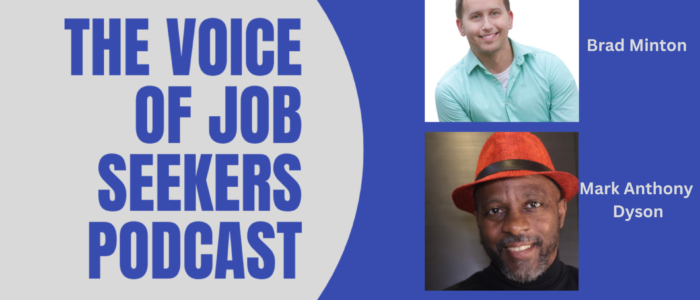
Podcast: Play in new window | Download | Embed
Subscribe: Apple Podcasts | RSS
I was a guest on the podcast “Young Professionals Career Catalyst,” Shelley Mailey of Dreamcatcher Career Coaching interviewed me. Be sure you subscribe to Shelley’s podcast. Job scams affect younger and older generations differently.
Shelley and I discuss the severity of job scams, noting a Better Business Bureau statistic of $2 billion in annual losses. Job scams affect younger and older generations differently. Younger people frequently fall for scams due to desperation for career opportunities, while older adults tend to lose more money per scam.
I describe the tactics scammers use, emphasizing the importance of being strategic and cautious about personal information. Scammers often employ social engineering to exploit job seekers’ vulnerabilities, tricking them through seemingly legitimate offers.
Recent scam tactics, like “resume looting,” where scammers hack job portals to steal massive amounts of personal data, urge job seekers to apply directly on company websites and verify the legitimacy of job offers.
I give examples of sophisticated scams, such as fake emails from “recruiters” with perfect grammar and spelling, possibly crafted using AI.
I advise scrutinizing the personal tone of such emails, checking company websites, and reporting suspicious communications to confirm their authenticity. Dyson lists red flags and warning signs of job scams, like unsolicited calls, seemingly perfect job offers, and requests for personal information too early.
I recommend using tools like Google Voice or YouMail to protect one’s phone number. He also advises running regular security scans on computers and using a VPN, especially when accessing public Wi-Fi.
In terms of recently observed job scams, “resume looters” who hacked job portals to steal personal data, and how international scams often precede similar schemes in the U.S. He urges job seekers to be vigilant in verifying company legitimacy and to report scams immediately, detailing how to protect oneself by notifying relevant entities, running security scans, and monitoring credit reports.
I offer tips on spotting and avoiding scams, emphasizing the need for thorough research, verification of email addresses, and understanding common tactics scammers use. He discusses the role of AI in these scams, noting that while AI can craft convincing communications, it can’t yet replace the need for personal verification of job offers and recruiter identities.
I wrap up with practical steps for job seekers if they become scam victims. Dyson advises reporting scams to ic3.gov, notifying entities where personal information was shared, and running security scans on affected devices. Proactively monitor one’s financial and digital footprints to prevent further damage.
Here are three ways you can join the conversation:
– Call and leave a voicemail at 708-365-9822, or text your comments to the same number
– Go to TheVoiceofJobSeekers.com, press the “Send Voicemail” button on the right side of your screen, and leave a message
– Send email feedback to mark@thevoiceofjobseekers.com

